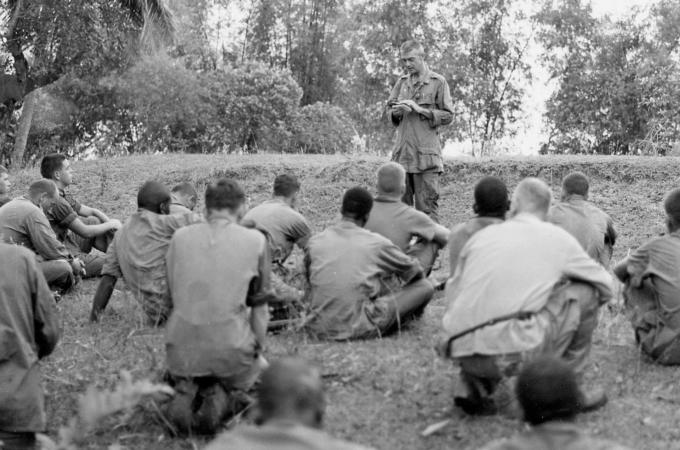Men who gave their lives for others
Later this year, two American men will be beatified: Father Stanley Rother, who will be beatified in Oklahoma City on Sept. 23 as a martyr; and Capuchin Father Solanus Casey, who will be beatified in Detroit on Nov. 18 for having lived heroic virtue. This will be a pair of firsts, as they will be the first U.S.-born males to be raised to the altars. (There have been a number of American-born females, like Native American St. Kateri Tekakwitha or St. Elizabeth Ann Seton, or St. Katharine Drexel. Women tend to outpace men in the race to holiness.)And the men who worked in America who have been beatified or canonized up till now have all been from other countries: the martyr St. Isaac Jogues from France, for example, or St. Junipero Serra from Spain, or St. Damien of Molokai from Belgium. All these heroes of our faith, women and men, stand as models of holiness and heavenly intercessors for us before God. The fact that they lived and worked in our society and close to our time makes them especially pertinent as witnesses to the universal call to holiness and apostolate that we all share.
On July 11, Pope Francis added a third legal path to holiness in the Church's canon law, apart from heroic virtue (Father Solanus' way) and martyrdom (Father Rother's way): giving one's life out of love. This corresponds to Jesus' words in the gospel: "No one has greater love than this, to lay down one's life for one's friends." (Jn 15:13). My impression is that this new category of sainthood better fits the case of saints like St. Maximilian Kolbe, who was canonized as a martyr, though a martyr for charity, since he voluntarily offered his life in exchange for that of a fellow prisoner at Auschwitz arbitrarily condemned to death by the Nazis. This is somewhat different from someone executed because of his or her witness to the truth of the faith, which normally characterizes martyrdom. Take the martyrdom of St. Thomas More or St. John Fisher, executed because of their fidelity to the teachings of the Church regarding the indissolubility of marriage and papal authority.
Among the requirements for recognizing this new path of holiness in someone is that the person freely offered their life out of love, accepting a premature death. Someone who dies in an attempt to rescue others, like a fireman on 9/11, would seem to qualify. At the same time, the person in question needs to have lived an ordinary level of virtue, not necessarily heroic virtue. (This is different from the path of heroic virtue, obviously.) And a proven miracle due to the person's intercession is also required. (This is different from the canonical path to beatification of martyrdom, where a miracle is not required.)
My candidate for an American to whom this category could apply is Maryknoll Father Vincent Capodanno, a Marine chaplain from Staten Island who died during the Vietnam War. Seriously wounded during a battle, he refused evacuation so he could help wounded Marines and administer last rites. Aiding a wounded comrade, he was machine-gunned to death.
Father Stanley Rother served as a missionary in Guatemala. He was killed in July 1981 at the age of 46. During the brutal civil war affecting the country, he was put on a death list for his pastoral work among the poor. He went back to Oklahoma briefly, but then returned because, as he stated, "the shepherd cannot run." Within days, he was killed. It's wonderful that this man who was a contemporary of many of us and hailed from the United States, will be beatified shortly as our first native-born martyr.
And that Father Solanus Casey will be beatified in November for his heroic virtue, his miracle having been approved recently by Pope Francis. Kind of an American Padre Pio, Father Solanus served as a humble doorkeeper for years at the Capuchin monastery in Detroit. But he prayed for all the growing number of visitors, giving them spiritual advice and healing (sometimes through miracles). His reputation for holiness has now been vindicated. As he said, "Were we only to correspond to God's graces continually being showered down on every one of us, we would be able to pass from being great sinners one day to being great saints the next." As has often been said, every saint has a past. And every sinner has a future.
- Dwight G. Duncan is professor at UMass School of Law Dartmouth. He holds degrees in both civil and canon law.



















